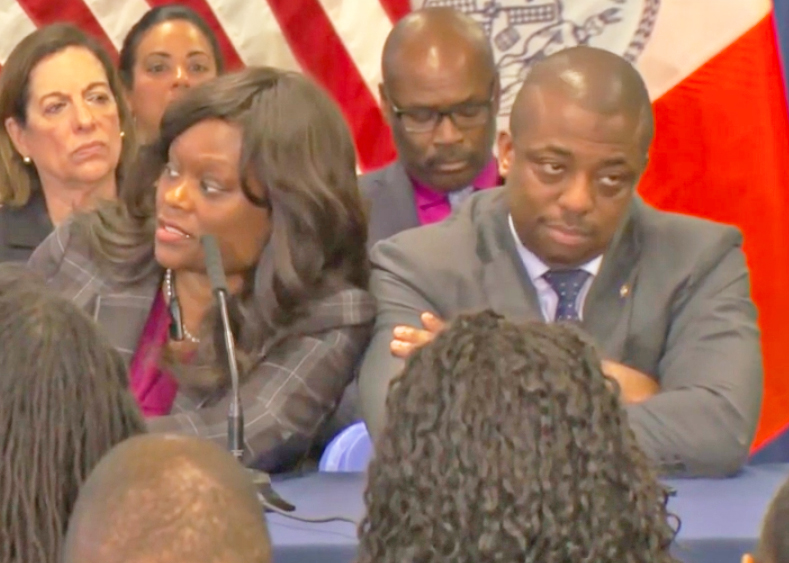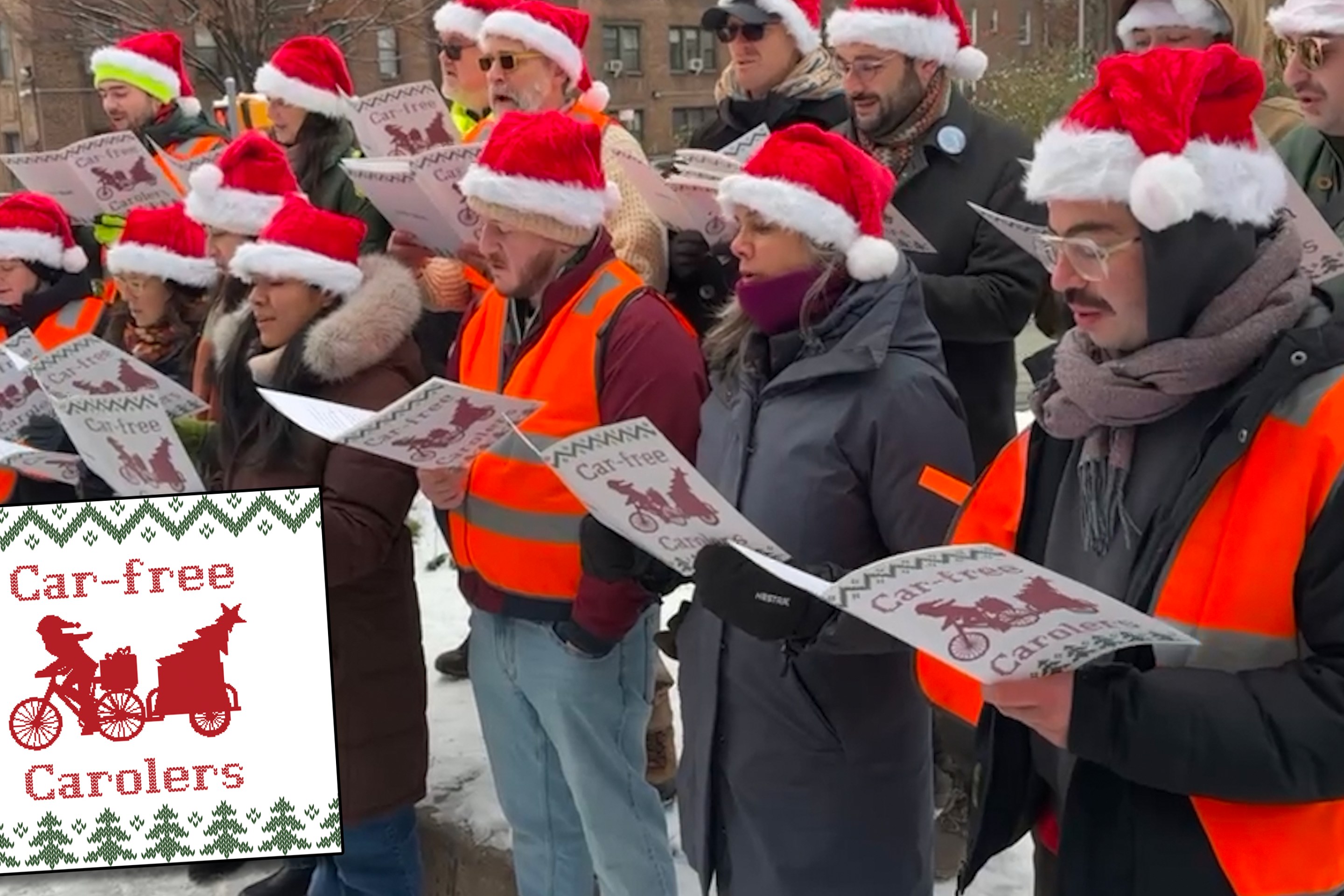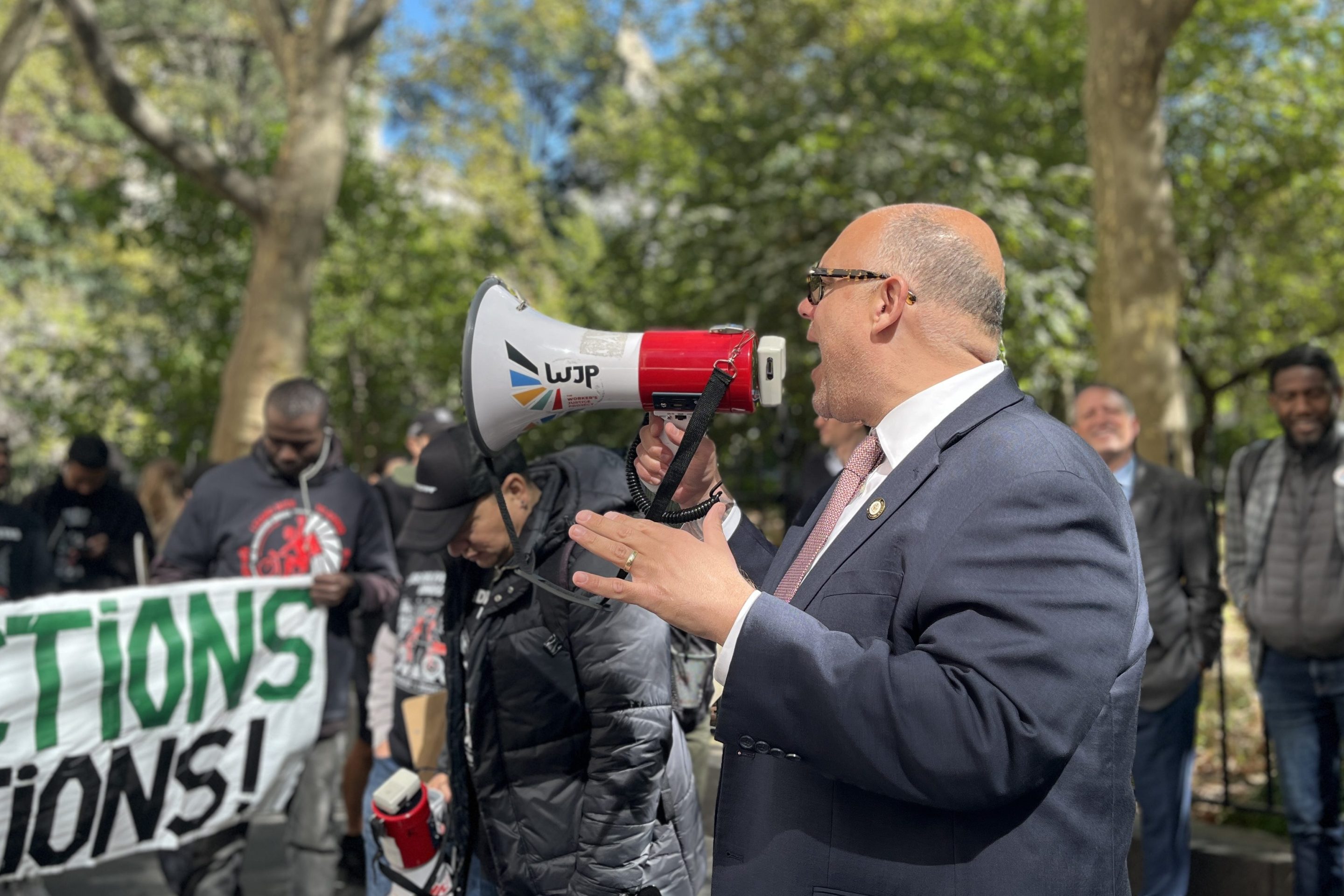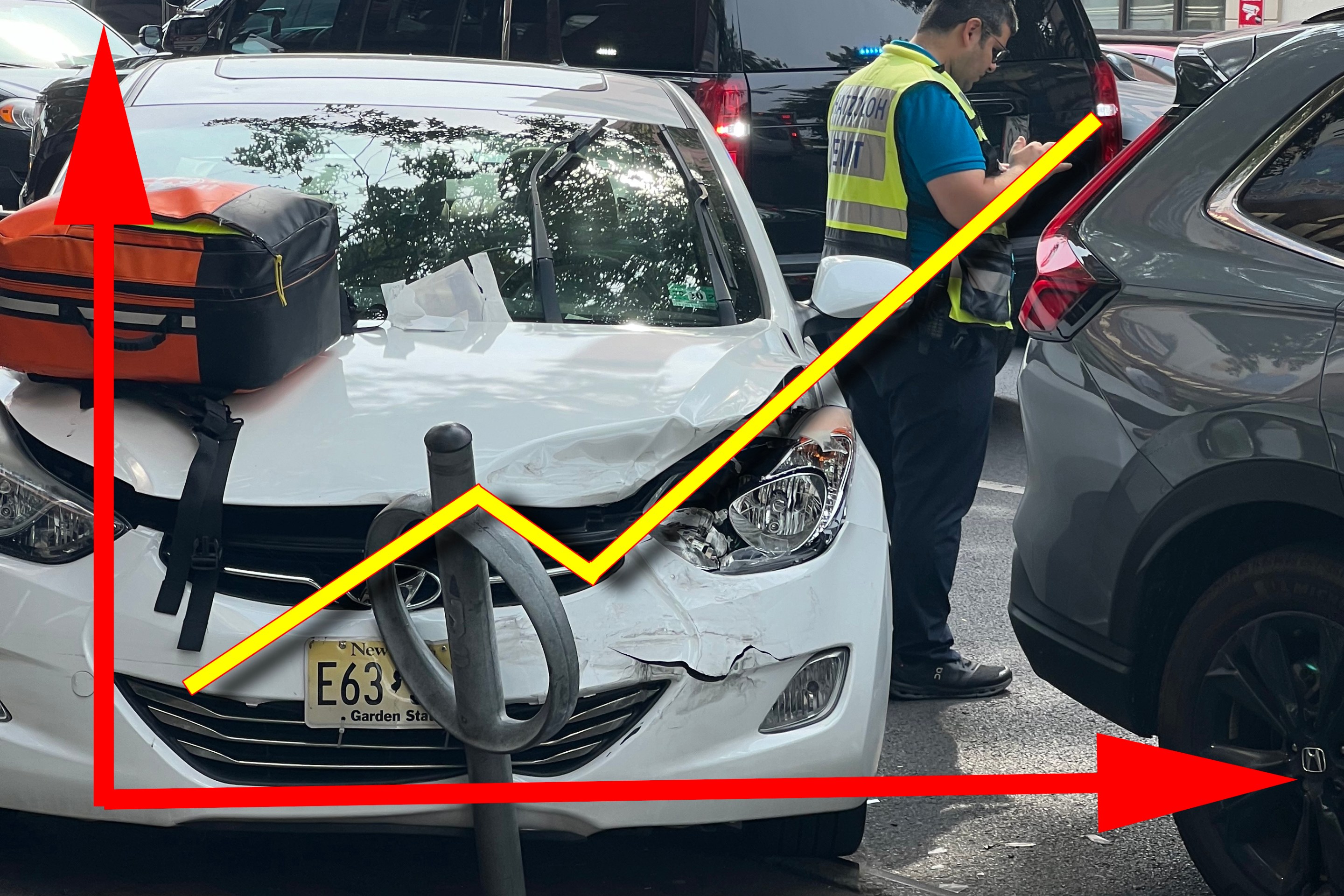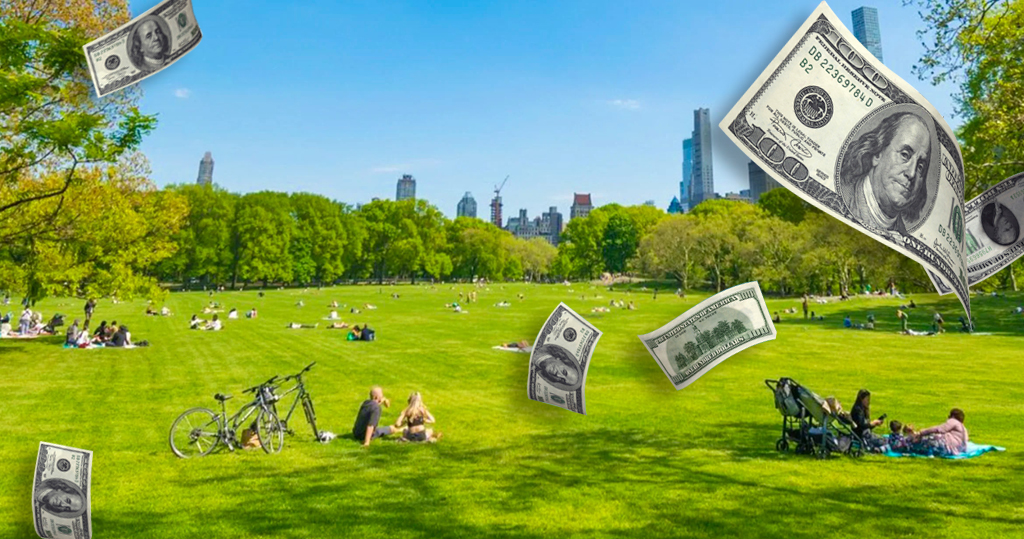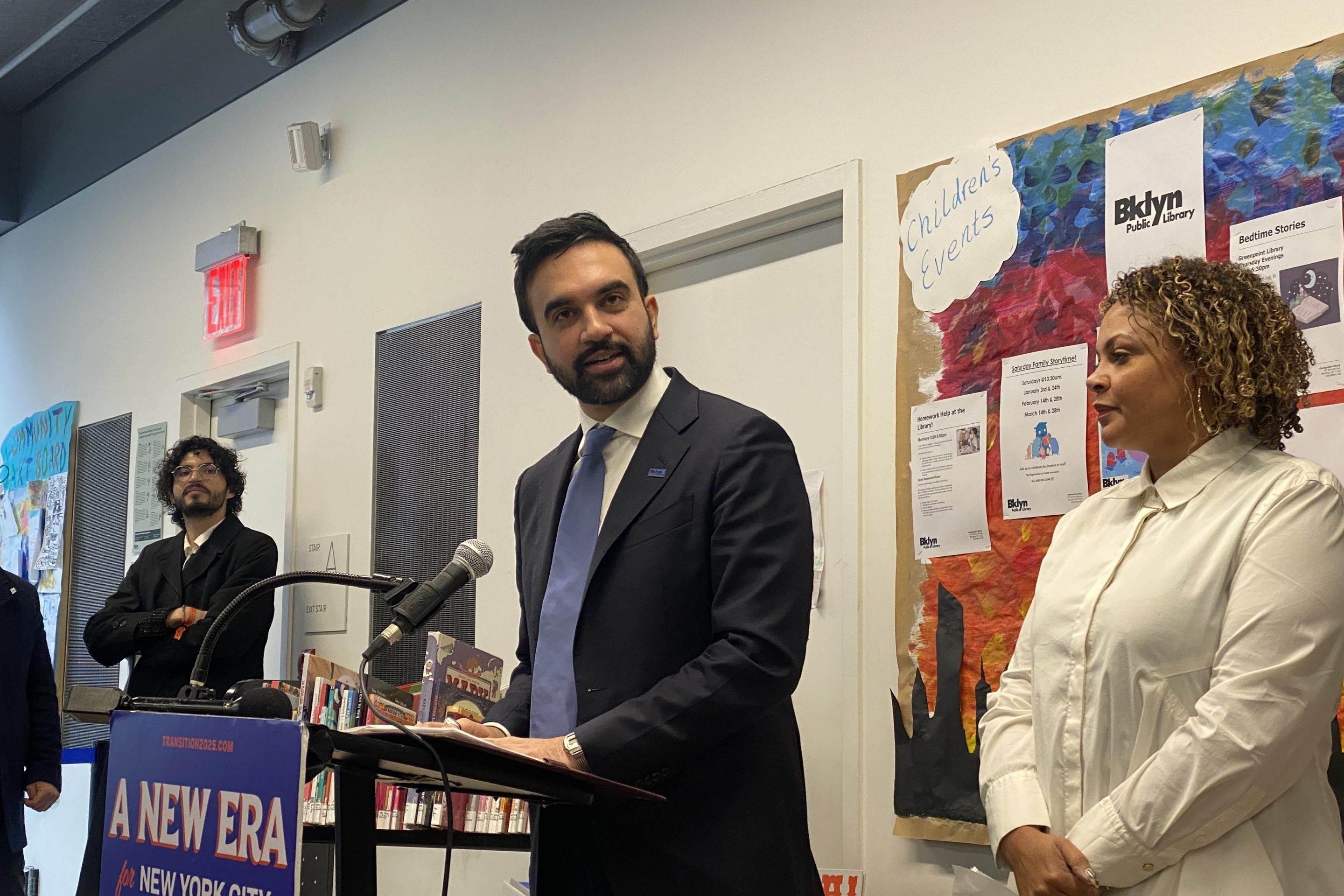An Assembly Member from Brooklyn spit out a rambling, fact-averse monologue on Thursday to call attention to her opposition to congestion pricing — and in doing so revealed again how inaccuracies and misguided fealty towards the car-owning minority threaten to sink congestion pricing.
At an otherwise unrelated mayoral press conference about an expansion of contracts for minority and women-owned enterprises, Assembly Member Rodneyse Bichotte grabbed the microphone and lit into the mayor, a congestion pricing supporter, sitting mere feet from her after a reporter asked about the proposal to toll drivers for entering Manhattan's congested central business district, with the revenue set aside to fix the crumbling subway system.
Here are unedited comments from lawmaker, who represents transit-rich Flatbush, with analysis of their wrongheadedness below (if you want to watch, click here and skip to 43:45):
In my district, people are concerned about the congestion pricing and how it could impact and develop the tales of two boroughs where, economically, a group of people being able to freely travel into Manhattan and others are not. But there's a greater issue. We all want our subways to be fixed. We all want alternative ways of getting from one end of the city to the other, getting to our schools, getting to our jobs. And we are deliberating and finding alternative ways. Congestion pricing is not the only way that we can find a way to change behavior or even fund MTA.
A reporter asked, "Are you a yes?" And Bichotte continued:
Right now, I'm going to go with my constituents. Right now, we're not in favor of congestion pricing in its form as it is today. But we are certainly for fixing the issue of our roads and streets being overpopulated and fixing the subway. Subways need to be fixed! We need to find ways, alternative funding. The "millionaire's tax." That's one way we can go about funding our broken subway system. You have to understand, everyone, the outer boroughs have been ignored for a very long time. OK? Low-income people of color have been dealing with our public systems for many many years, 30, 40 years. Completely ignored. We on the state level have been funding the MTA with billions and billions of dollars in capital. Fares have been increased. In my district, we had workers' jobs taken away. Subway station workers have been closed down. My constituents are asking, "If we are increasing the fares, where is it going? How come we've been yelling for years — 30, 40 years to fund our MTA — and nothing has been done?" And now, people are looking to tax people who are mostly vulnerable. So there's a lot of issues. Again, we all want the same thing. We want to move New York City more efficiently and expediently, but not at the cost of our working families."
As Bichotte finished, Senator Brian Benjamin (D-Harlem) grabbed the mic to challenge his Assembly colleague, pointing out that the $1 billion in congestion pricing revenue will support $15 billion in subway and bus repairs that are long overdue and will benefit Bichotte's most-struggling constituents. He also added, "The 'millionaire's tax' is not something that has the support of the governor or our senate — at least at this time — so if we don't do congestion pricing, it's unclear to me how are we going to [fund] the MTA."
This is *particularly* germane questions for Assembly reps in transit-reliant districts. I at least understand it better when it comes from those repping subway deserts, but Bichotte, for example, has no good excuse. https://t.co/byzUAEMIV9
— Second Ave. Sagas (@2AvSagas) March 21, 2019
For his part, the mayor expressed his support for congestion pricing and expressed optimism that it would pass (though that's very much in doubt). Then he let Bichotte have the last word.
"I want to make one point," she said. "So the governor turned down taxing millionaires but he's OK with taxing working people. I have a problem with that."
Most people would — except that congestion pricing is not a tax on working people, advocates pointed out in the frenetic moments after Bichotte's press-conference stink bomb.
"This is not a tax on working class people," said Nick Sifuentes of the Tri-State Transportation Campaign, which has analyzed commuting data for residents of every legislative district.
The analysis for Bichotte's district is especially damning to the Assembly Member's position: Of commuters headed to the proposed congestion tolling zone, only six percent drive versus 92 percent who take transit. Only 1.9 percent of commuters in Bichotte's district would end up paying the congestion toll. And the people who drive into the central business district earn, on average, $10,000 more per year than those who take transit.
"There is no actual credible argument that congestion pricing hurts working people," Sifuentes said. "The data does not support that, nor do the stories that we hear from riders who need this. The numbers in her district are literally the biggest disparity.
"This shows the problem of elected officials promulgating wrong messages and incorrect facts," he added.
Danny Pearlstein of the Riders Alliance also called congestion pricing "fair" because it would benefit lower-income people at the expense of a small number of people who choose to drive into Manhattan.
"She overwhelmingly represents people who rely on the transit system to get around," he said. "Congestion pricing is fair, sustainable, and the largest single transit-specific source of revenue now on the table. That's why so many of her colleagues, who also represent working people who rely on transit, have gotten on board."
Advocates weren't concerned only about the inaccuracy in Bichotte's comment, but also the misguided defense of a tiny number of car drivers.
"Wow. Her comments are dangerous and they're factually incorrect," said Jaqi Cohen of the Straphangers Campaign. "It just seems like she is holding on to an old argument that has been widely debunked that congestion pricing is a regressive tax, when we know for a fact that quite the opposite is true."
Sifuentes blamed Mayor de Blasio for some of that lingering class resentment. Before he finally embraced congestion pricing last month, the mayor had criticized it as a regressive tax and questioned its fairness.
"This is a fine example of how the mayor's talk last year wasn't helpful," he said. "I was at a meeting recently and drivers were complaining about the toll, even though they don't drive into the CBD. They just don't like the idea of a toll — and she's probably hearing from angry car drivers in her district, even though they don't drive into the CBD either.
"She's listening to the squeakiest wheels rather than the hard-working people who take transit and don't have the time to make a call or go to a meeting," he added.
A mayoral spokesman declined to comment on whether de Blasio confronted Bichotte after the press conference. Bichotte did not respond to a call and an email.
If you are interested in expressing your opinion to Assembly Member Bichotte, her office number is (718) 940-0428.
